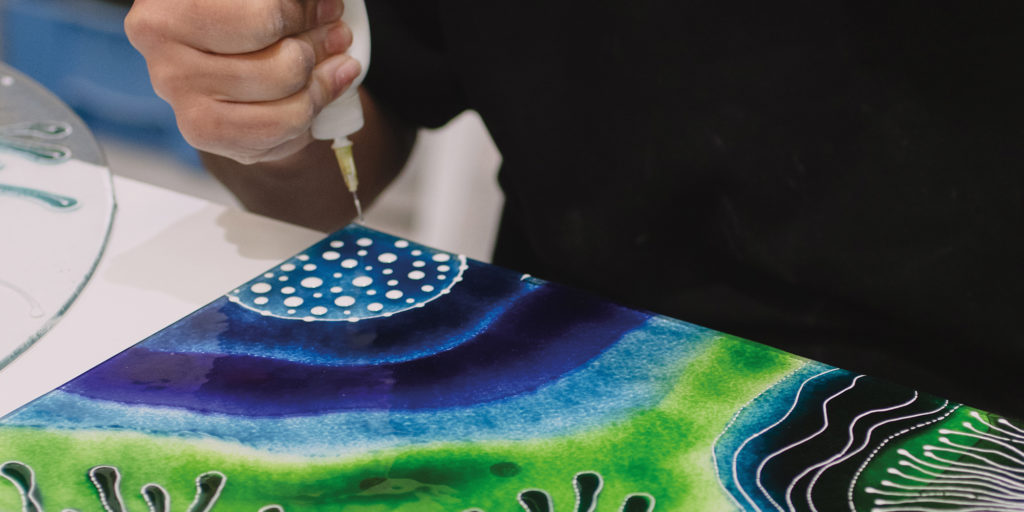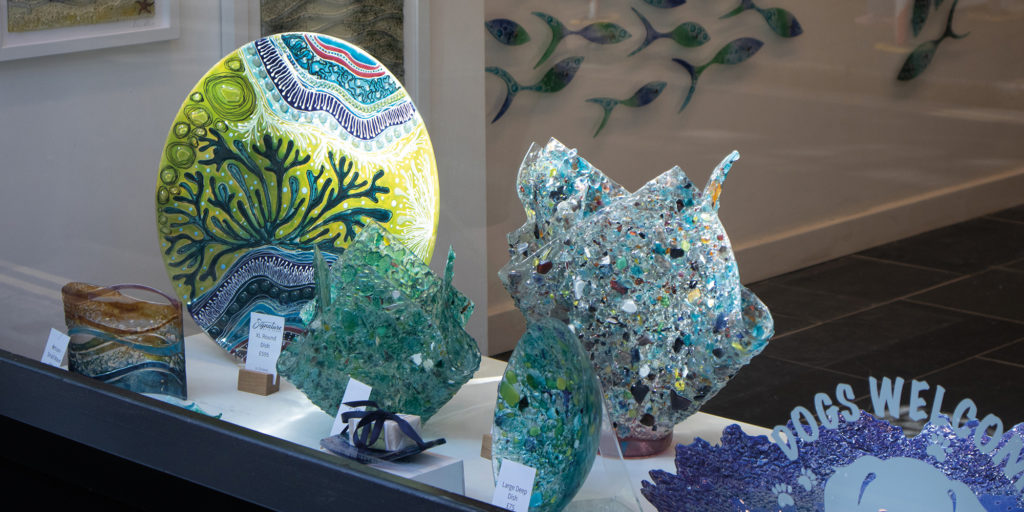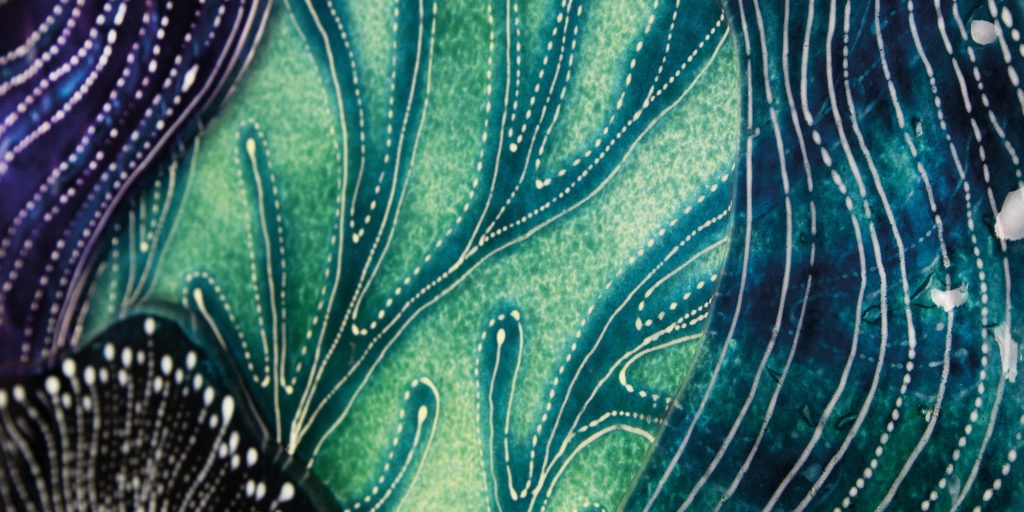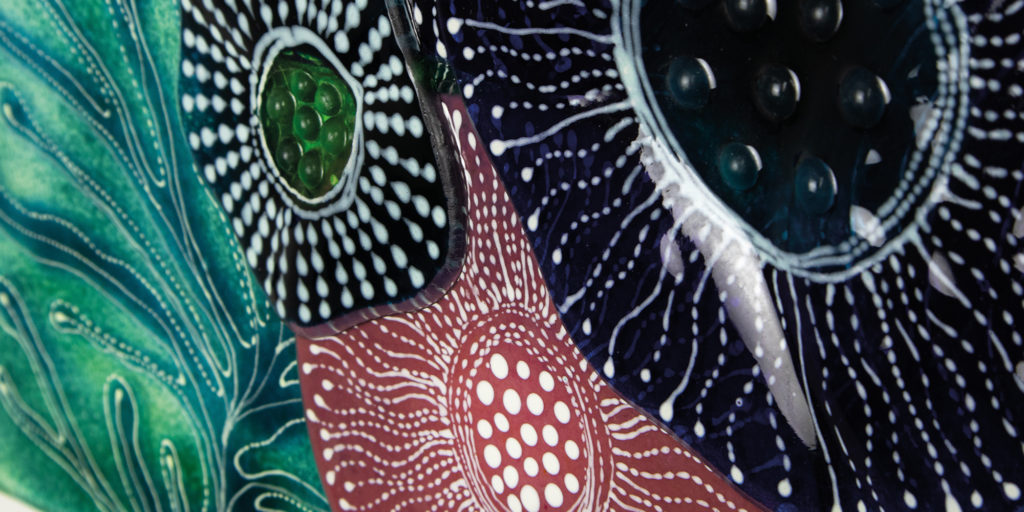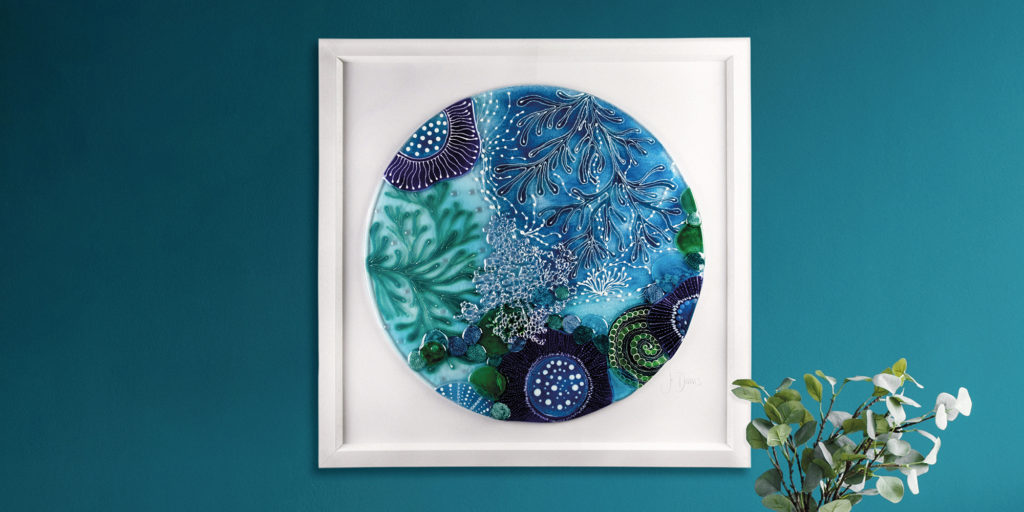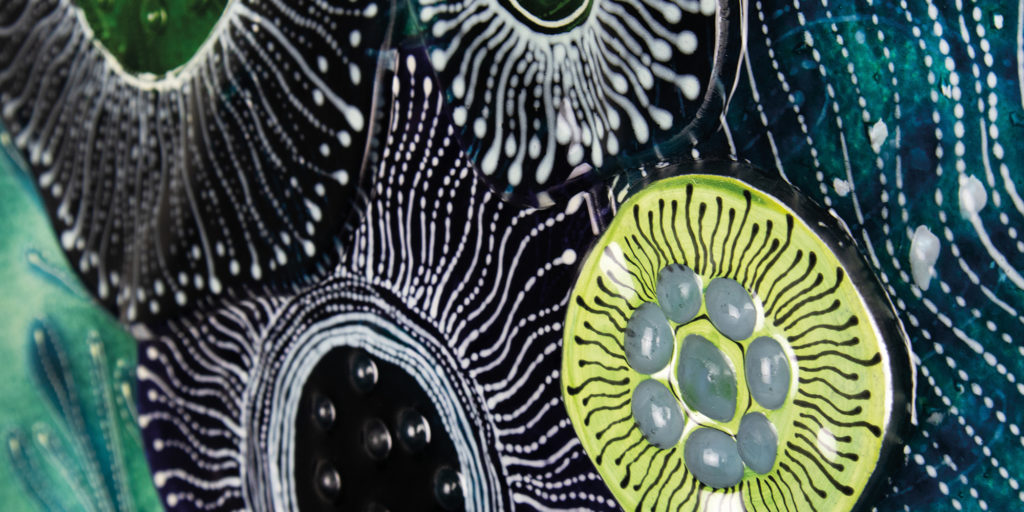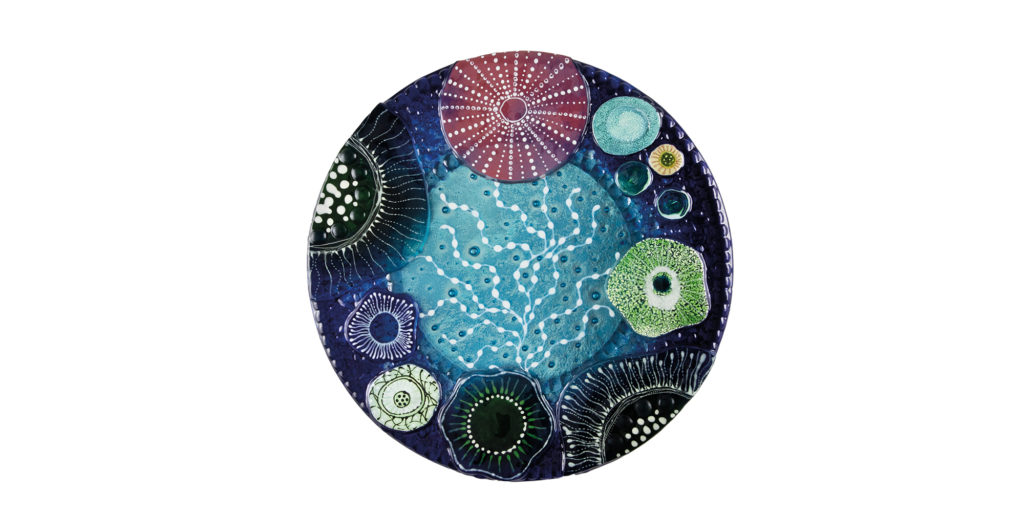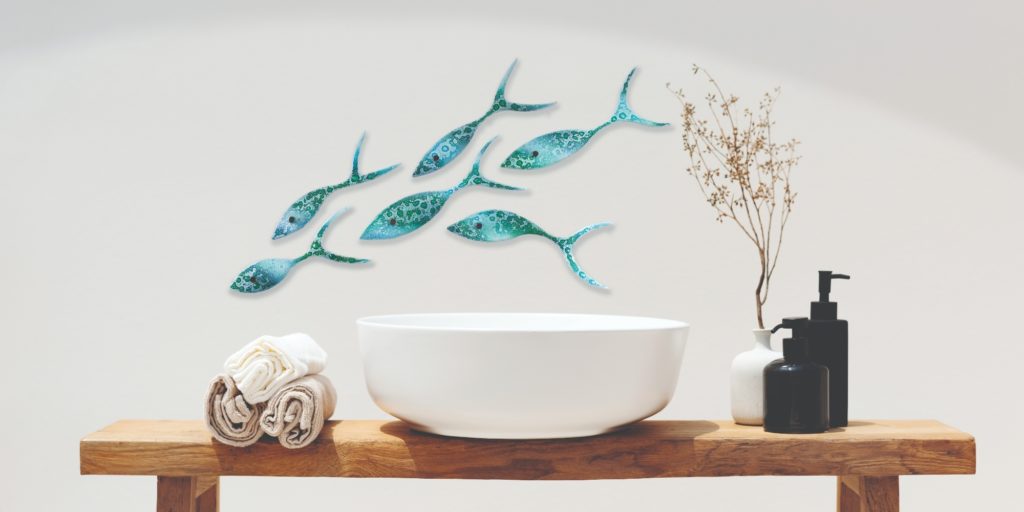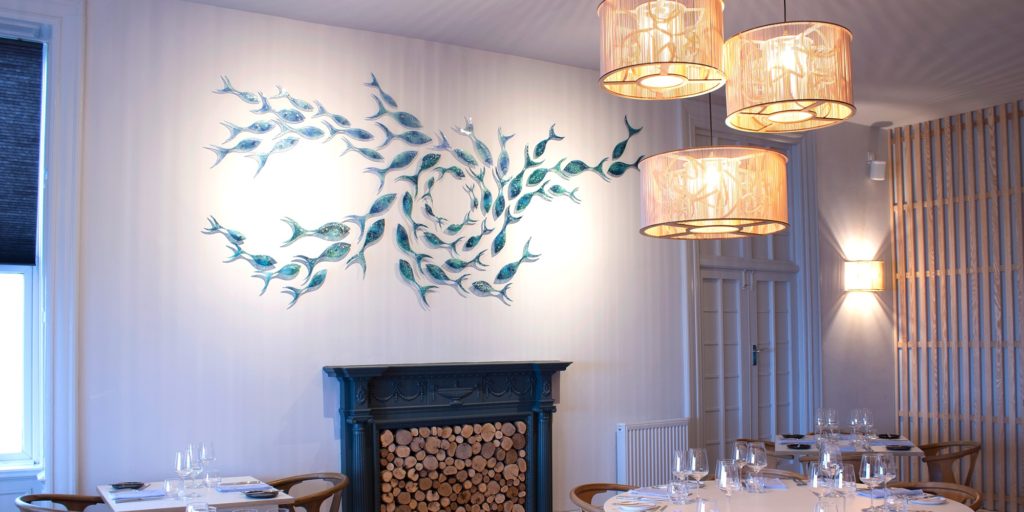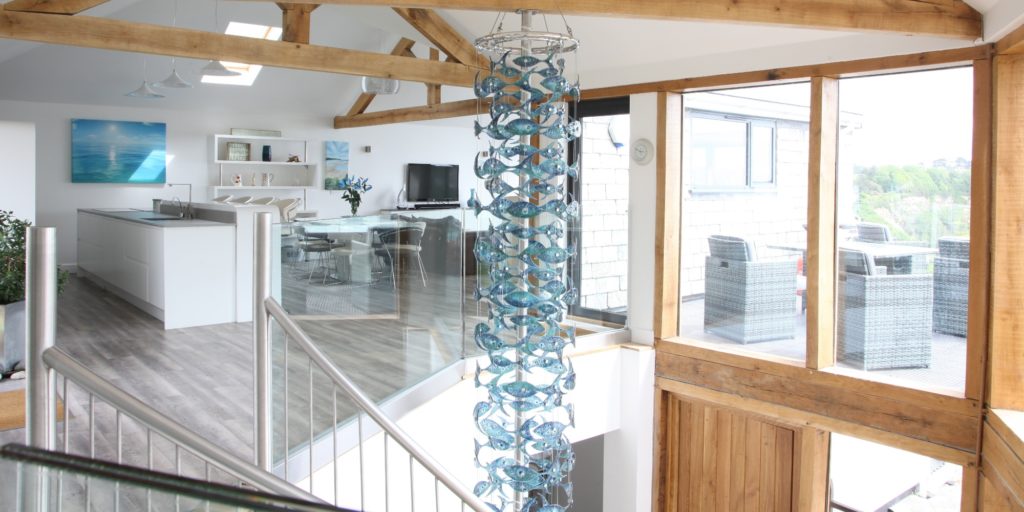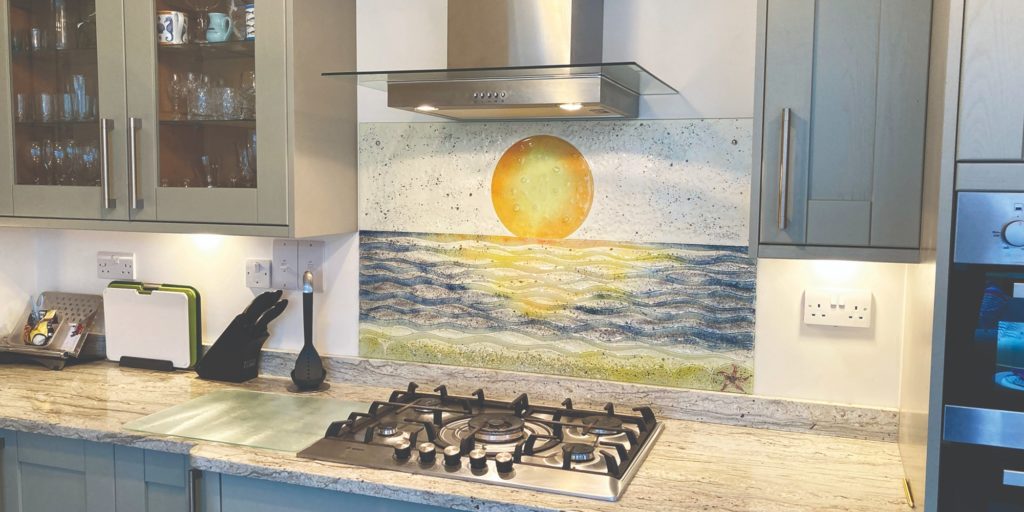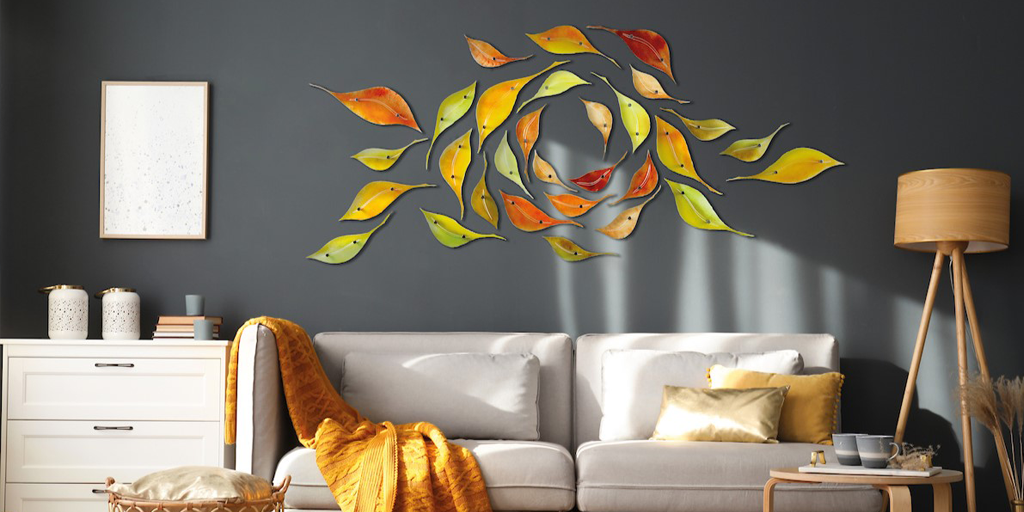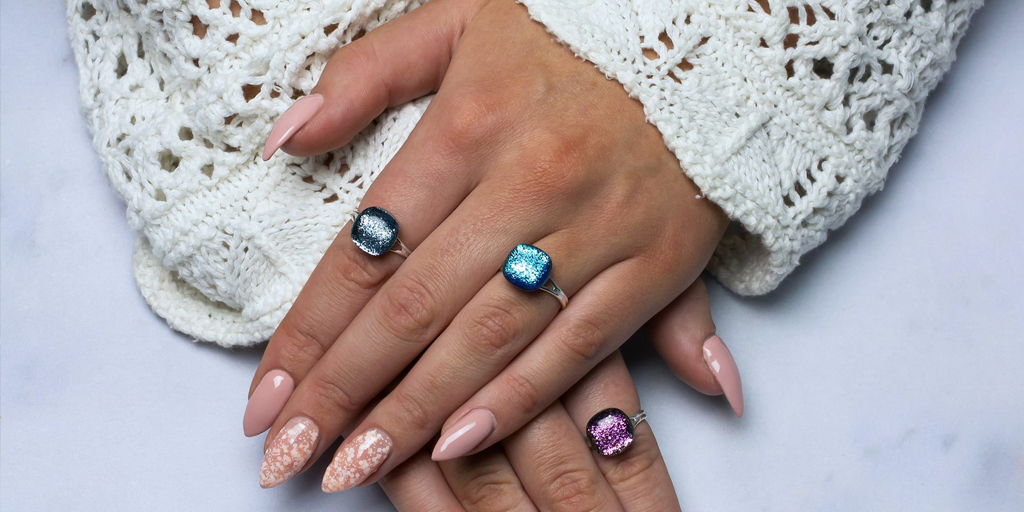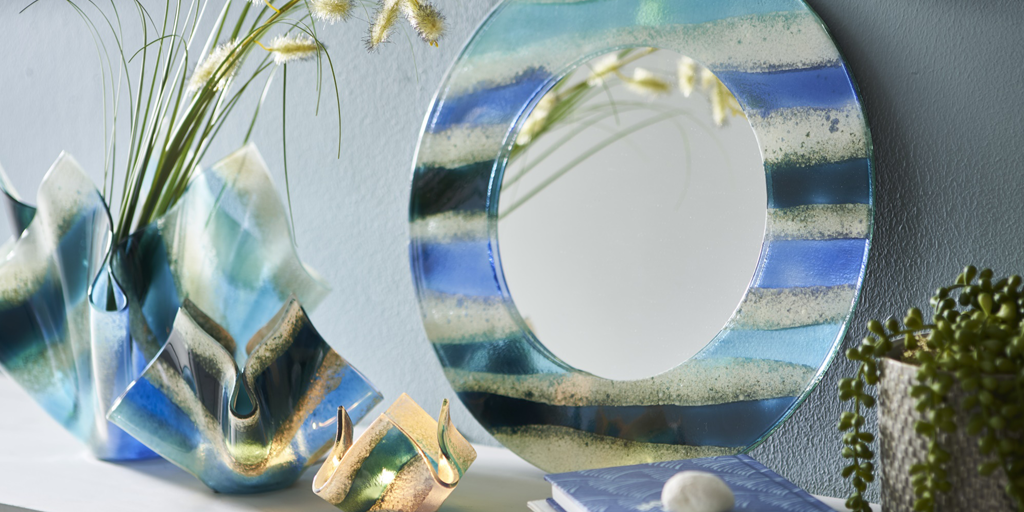

Creative and retail resilience
Sometimes the hardest choices forge the most hoped-for results.
Words by Jamie Crocker
In Robert Frost’s words, “Two roads diverged in a wood, and I… took the one less travelled by, and that has made all the difference.” For fused glass artist Jo Downs, both her artistic journey and the direction of her business have been shaped by such moments.
Earlier this year, Jo stepped away from the daily demands of running one of the UK’s most successful glass studios and retreated to the hills of rural Spain. It was there, far from the pull of deadlines and commercial pressures, that she re-discovered a rare state of uninterrupted creative flow. For weeks, she immersed herself in the raw, experimental spirit that first drew her to glass more than three decades ago.
The work that arose from this solitude was unlike anything she had created before. Some pieces sold before they could even be photographed, demonstrating their energy and originality. This became the foundation of her latest Signature Collection, which marks a leap in complexity. Drawing directly onto glass with a needle-tipped pen filled with specially mixed enamels, Jo forms lines that blur and bleed during firing, much like watercolour pigments seeping into paper. This organic unpredictability reflects the Cornish coastline, one of her lasting inspirations, with its constant interplay of solidity and erosion.
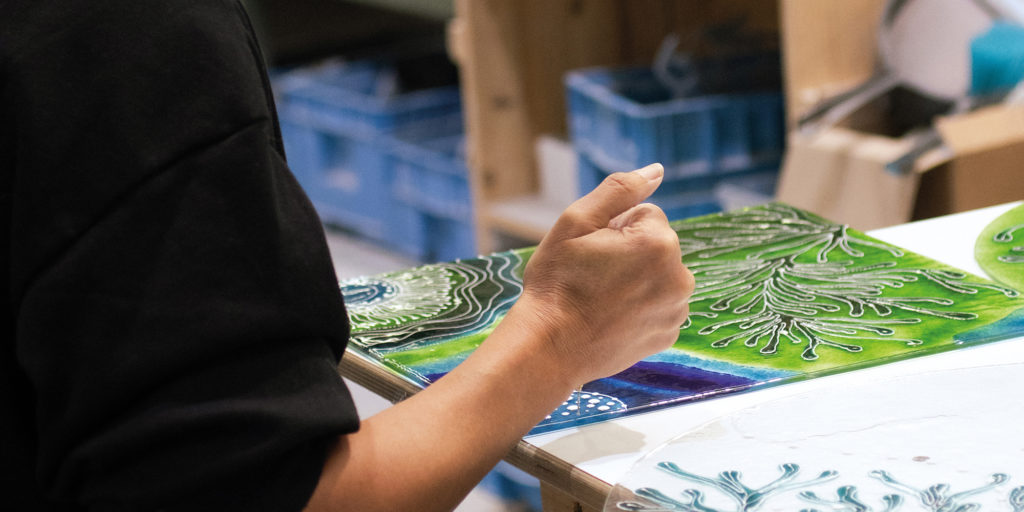
These are not works that can be rushed. Each piece takes days, with multiple processes layered together, elements fired separately and then assembled into richly textured compositions. Some surfaces are smooth and sinuous, others jagged, their edges a reminder of the sharpness that has left Jo’s hands permanently scarred. She jokes that her expertise could be measured in cuts rather than hours, but the truth is she has long surpassed the 10,000-hour threshold for mastery.
Yet artistry alone does not sustain a business. Last year, rising rents, soaring energy costs and the wider economic climate left Jo facing a stark choice: expand or contract. In business terms, this is often the point where owners either consolidate to protect cash flow or take the calculated risk of widening their reach. For many, contraction is the safer option – reducing overheads, streamlining operations and weathering the storm until conditions improve. However, contraction can also lead to a loss of visibility, a shrinking customer base, and a gradual erosion of brand presence. The numbers told their own story; the model that had served her for years was no longer sustainable without change.
Against cautious advice, she chose to take a risk and grow. Expansion, when executed strategically, can open new revenue streams, spread risk across multiple locations and reinforce brand recognition. Opening new galleries in Truro and Dartmouth was as much a survival strategy as it was an act of optimism. The Truro space, taken on for an initial three-month trial, exceeded expectations and became permanent. Dartmouth, suggested years earlier by her father, who knew of the town’s appreciation for fine craft, proved equally successful, demonstrating that growth, though risky, can be the more resilient path.
Expansion, however, meant confronting her role in the company. The creative passion that launched her career often conflicted with the demands of management. The solution lay in stepping back from some of the day-to-day running of the business, allowing her to focus on the work only she could do – creating. This shift has been transformative, restoring the balance between artist and business owner.
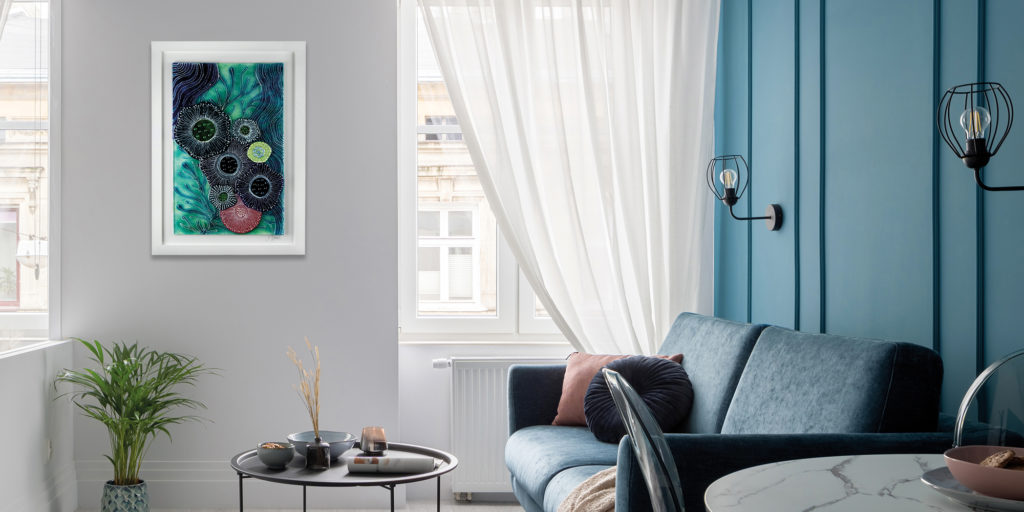
Her approach to teaching mirrors her own path. In her master classes, she encourages experimentation over rigid technique, inviting students to embrace uncertainty and discover possibilities through play. When she began, glass fusing was sparsely documented, so she learned through trial and error. That process of discovery, of finding the medium’s limits by pushing past them, remains at the heart of her work.
The Spanish retreat was a natural extension of this philosophy. Working in a modest mountain village with a small kiln, she had the time and headspace to follow ideas to their conclusion without external pressure. The resulting pieces are like three-dimensional sketches, layered with colour and texture, and they disappear from galleries as quickly as they arrive.
Public exposure has only fuelled this momentum. When BBC Spotlight filmed a segment on the challenges facing creative businesses, Jo’s work featured prominently. Within hours of broadcast, several pieces had sold. More recently, her stand at the Royal Cornwall Show drew visitors who recognised her from television, underlining how excellence in craft can cut through the noise.
The decision to expand beyond Cornwall was also strategic. While her home in Cornwall remains her creative anchor, new audiences were essential for growth. Dartmouth’s thriving artistic community and visitor profile were a natural fit. Further afield, her Sunningdale gallery, which also hosts special workshops, has introduced her work to yet another appreciative market.
The techniques refined in Spain are now evolving further in Cornwall’s larger kilns, allowing for bigger, more ambitious pieces. The combination of small-scale experimentation and large-scale production capability represents the maturation of her practice, a balance between intimate creativity and bold output.
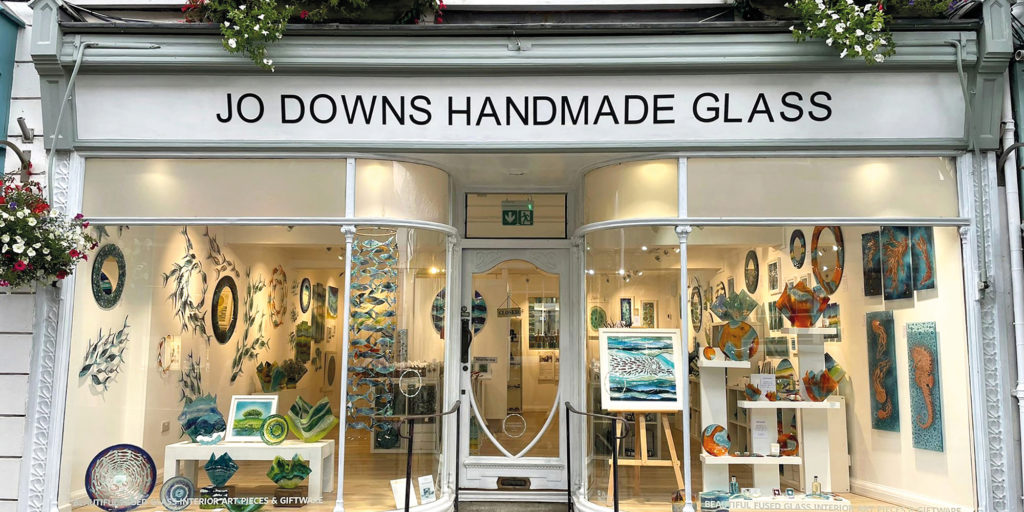
Despite technological progress, her relationship with the material remains physical. The heat of the kiln alters the raw substances, but each piece still bears subtle marks of the hands that crafted it. In a world of mass-produced objects, that human touch is what endows her work with its enduring value.
Looking ahead, Jo plans to maintain the rhythm that now works so well: periods of creative retreat, followed by the unveiling of new work through her galleries. Her master classes will continue, passing on the lessons of decades spent at the glass face to those eager to learn. Above all, she is determined that growth will never come at the expense of creativity.
Her journey, from bedroom studio to multi-site operation, shows that even in challenging times, creative businesses can flourish when they stay true to the reason they began. Adaptation is essential, but the vision that drives the work must remain constant.
Jo Downs has galleries in the following places: Launceston, St Ives, Padstow, Fowey, Tintagel, Sunningdale, Truro and Dartmouth.
JO DOWNS HANDMADE GLASS
01566 779779
sales@jodowns.com
www.jodowns.com
